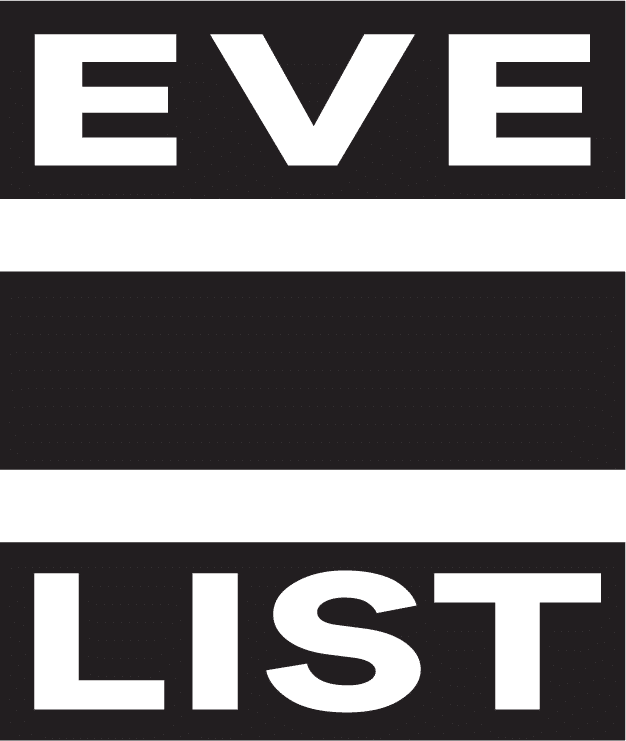Thirteen Ways Leaders Exercise Ethical Leadership

This week, EVE Voices guest contributor explores how integrity of values and actions make the ethical leader so effective in building great teams.
By Gareth Noble, Leadership consultant, Straight Street Media
Leadership ethics relate to what leaders do and who leaders are. A leader’s ethical standpoint will regulate the choices they construct and how they will answer to any given situation. It has everything to do with their nature, behaviour, and integrity.
Leadership ethics is crucial today because countless leaders face many difficulties that challenge their capacity to do what is right. Arguably the most threatening stumbling block for the modern leader is personal weakness and self-interest rather than full-scale corruption.
Pressures to reduce expenses, increase sales, meet the demands of business partners can all contribute to ethical failure.
Ethics is pivotal to leadership because of the engagement and bond between leader and follower—the values of an organization originate from within the leadership structure.
Therefore, a leader’s value system is the compass that navigates its people morally.
Ethical theories fall inside two general fields, the Leaders’ conduct or actions and character or who they are.

Here are 13 ways leaders exercise ethical leadership:
- Communicate Extreme Moral Values
Most companies have their values posted in the staff room, canteen or website. They are straightforward, bold and for everyone to see. It, kind of stares one in the face, but does anyone ever read it, other than knowing there will be a quiz, or before that dreaded interview?
Ethical leaders communicate high morals through different mediums – emails, speeches and mentoring sessions, for example. The mode is not as important as the message. It reminds me of the ten commandments given to Moses, on a tablet, no confusion and in plain sight for all to see.
In Harper Lee’s To Kill a Mockingbird Atticus Finch is a white man defending a black man named Tom Robinson, accused of raping a young girl. In the Deep South in the 1930s, this was scandalous, due to pervasive racism. Nevertheless, his morals tell him to protect and serve every member of society, no matter the colour of his or her skin.
When the narrator, Scout, asks her father why he’s defending Robinson, he says,
“You really never understand a person until you consider things from his point of view – until you climb into his skin and walk around in it.”
Atticus was teaching her empathy and not to judge, both sound morals.
The stories we tell can have a significant impact on others and create moments of incredible teaching. Literature holds a vast resource to communicate morals, such as the famous Aesop’s Fables.
One of his fables brings corporate America to mind, The Wolf in Sheep’s Clothing” the moral lesson – Appearances can be deceiving.
- Make Your People the Center of Attention

I’ve asked many leaders the question, “what is your greatest asset”? I leave the question vague on purpose to see where they are at. Some will say “we have a killer product no-one can touch”, or “my business acumen”, others will say something like, “our software system is the best” or “our high tech-facility”.
Rarely do I hear a leader say that they have the best people. When you grow your people, everything around you grows.
Ethical leaders do what’s right for the people and the organization. That is their focus and number one priority. When you get that right, the products improve, the facilities grow, and the resources begin to multiply.
- Live the Example
A leader’s values are personal but never private. Leadership should be as open to scrutiny as the tea-room to maintain high ethical standards all through the organization. Ethics should remind leaders to ask themselves,“What is the right thing to do?” Leaders must set the example by living a life of integrity.
People buy into the leader first, before they buy into the organization.
Character is the centre from which leaders inspire others. Ethical leadership embraces the qualities that build for a strong character which develop the capacity of superior leaders the world desperately craves.
Trust is not a gift or a talent but a result of time-tested character forged in the middle of life’s trials.
The Covid 19 pandemic exposed thin leadership and revealed the resilient.
- Honesty is Really the Best Policy
I’m sure you’ve heard it said, “let your yes be yes, and your no be no”? Sounds simple right? But when the stakes are high, it is not that clear cut!
It is not a matter of if, but when, one faces a moral dilemma. Naively we might say something like, “the problem will sort itself out”. I wish that were true, the reality is, it never does. This is when procrastination likes to rear its ugly head.
We tend to look for the path of least resistance, rather than sacrificing towards our purpose, or we might tell ourselves that this issue doesn’t really matter.
Discipline means crunch time – making the right decision under pressure.
The highest form of discipline is self-control. Those who are self-disciplined have earned the right to discipline others.
People recognize this quality and magically command respect from the onlookers. Dishonesty fuels the collapse of relationships. Dalla Costa (1998) said it well in his book, The Ethical Imperative:
“Do not promise what you can’t deliver, do not misrepresent, do not hide behind spin-doctored evasions, do not suppress obligations, do not evade accountability, do not accept that the ‘survival of the fittest’ pressures of business release any of us from the responsibility to respect another’s dignity and humanity”.
- Be as Bold as Brass

Abraham Lincoln didn’t go all the way to Gettysburg with confidence and information in his pocket. There was no big data or Gallup poll to find out what would sell in Gettysburg. When will we have the courage of Abe?”
I love the quote “Fear is what you feel; courage is what you do”. That stirs something up on the inside of me. We need more leaders that stand for a greater cause and not just for capital gains. We are in business to make money, but not at the expense of others.
Bill Treasurer, in his book, Courage Goes to Work, shares three ways in which one can practice courage:
- Try Courage. This is the courage to take the initiative, to “step up to the plate” rather than playing it safe. To help followers practice try courage skills, leaders help people build on their strengths, provide challenging assignments that require people to stretch themselves, encourage novel approaches and experimentation, accept mistakes, and reward persistence in the face of obstacles.
- Trust Courage. The second type of courage is the courage to trust and rely on others. Leaders trust others to gain trust in return. They give people the benefit of the doubt, and they give employees lots of latitude in how to accomplish their tasks. Leaders build trust courage by respecting followers, being honest but kind and courteous, and getting to know people on an emotional level. They can help followers practice trust courage by encouraging them to open up about their feelings, desires, dreams, and fears.
- Tell Courage. “I have come to believe that the TELL Courage bucket is the one most in need of filling,” says Treasurer. When people are afraid to speak up about mistakes, voice contrary opinions, question their leaders, and point out wrongdoing, companies suffer, as many leaders have learned in recent years. Leaders establish tell courage by encouraging people to speak up, genuinely listening to others, not taking things personally, avoiding blame and defensiveness, and, when appropriate, acting on what they are told.
- Establish Ethics Policies
A code of ethics outlines the ethical principles that govern decisions and behavior at an organization. In essence the policy outlines how employees should behave, as well as specific guidance for handling issues like sexual harassment, inclusion, and conflicts of interest. The policy should simplify decisions surrounding ethics.
Here is an example of a code of ethics:
Under Armour – Make the Right Call. It’s as simple as it sounds. Whenever you’re faced with a decision—big or small—always do what you know is ethically right, and, of course, always follow the law.
- Reject Ethical Intrusion

Leaders who stand down opposition must exert moral courage rather than give in to the fear of man. If you accept the call to ethical leadership, be willing to be misunderstood, criticized and opposed. Often, exceptional leaders are not recognized or appreciated by their contemporaries.
If you need the agreement of everyone around you to feel secure, you will never be an effective leader. Great leaders bring change and change by its very nature causes conflict and push-back.
- Reward Ethical Behavior
Generally speaking, employees with a vested interest in their place of work won’t be caught with their hands in the cookie jar. A profit-share system is an excellent incentive to reward employees that consistently show first-rate moral behaviour and that steward the companies resources well.
The pot and its contents are safer when a portion of the cookies in the jar belongs to everyone! Rewarding employees for ethical behaviours desired will prevent such incidences as skimming off the top, cooking the books, or stealing a piece of the proverbial pie.
This reward system may entice potential contributors to follow suit and discourage unethical and immoral behaviour. Other ways of gifting remarkable ethics may be sending employees off to training programmes, giving extra paid days leave or a well-deserved bonus.
- Demonstrate Respect
Respect is the esteem for or a sense of the worth or excellence of a person. Ethical Leadership places the utmost value on the dignity of all humankind.
Philosopher Immanuel Kant (1724–1804) reasoned that it is our obligation to treat others with respect. To do so suggests humanity to treat each other as ends in themselves and never as means to ends.
I stand by the conviction that if one does not respect other people, that person should not be in Leadership.
- Live a Congruent Lifestyle
Integrity is to have one face—not multiple faces!
The private life and the public life of ethical leaders are congruent; they are the same. These types of leaders live a life of integrity, even when no-one is observing them.
When communicating with the general public, we must still mean what we said when we are in private. Ethical leaders remain the same person wherever they go, come rain or shine. They have an inner conviction to what they say and walk the talk, not talk the walk.
The ancient Greeks progressed drama & acting. Initially, they began by using a handful of performers to narrate a story. Later on, they switched to individuals who played multiple roles by wearing assorted masks to match the particular character in the theatrical production.
The Greek word that described this particular performer is the word hypokrites, from which we get “to the needy, do not announce it with trumpets, as the hypocrites do in the synagogues and on the streets, to be honoured by others”.
In essence, the writer was driving the point across that one wears multiple masks like the actors do, and pretend to be someone that they are not; it is a façade, an act. You keep changing masks and changing character. The word “two-faced” derives from this notion. Leaders that do this confuse their followers and show up as a fraud.
This ancient text found in the Bible warns of those types of people who clean the outside of their cup – make it look clean and shiny, but the inside of the cup is dirty.
Leadership lives from the inside out, not the other way around. I recall a saying that goes something like this;
“you can fool some of them, some of the time, but you can’t fool all of them all of the time”.
Authentic leaders remove the mask and commit to never putting it back on. Followers are then confident knowing who they are following.
Most people will follow a leader with faults and is real than a leader who pretends to be perfect.
This character trait builds a sense of trust among the group. When a leader is real, admits he is not perfect, has not arrived, models to their followers to be the same and lead by example.
- Serve Your People

Ethical leadership does not originate from an ambition to lead or to be great but from a deep conviction to serve others. How do we do this?
Robert Greenleaf describes four basic tenets in his book, Servant Leadership:
- Put service before self-interest. His outlook suggests that the organization exists as much to provide purposeful work to the person as the person lives to accomplish work for the organization.
- Listen first to affirm others. One of the servant leader’s supreme offerings to others is to be a bona fide listener.
- Inspire trust by being trustworthy. Servant leaders build trust by following through with what they say, being honest with others, and focusing on the welfare of others.
- Nourish others and help them become whole. Servant leaders nurture followers and believe in the matchless potential that each person has to leave an irrefutable impact on the world.
- Stand for Justice
To be “just” denotes to consider all in an objective light, not showing partiality.
If an organization base their ethics on rock-solid principles, it will curtail and control the prevalence of fraud and dishonesty within the institution. On the other hand, in unethical organizations, corruption will be unrestrained, that’s a no-brainer.
When the leadership of a country do not esteem justice and respect for their fragile and vulnerable citizens, corruption and abuse will run rampant throughout the administration.
Two sobering questions to ask yourself is, “Do I treat others with impartiality, regardless of how they may treat me? And, “Do I seek justice for those in my community?
To locate an ethical community may be as rare as hen’s teeth, but there are communities of ethical people to be found. Collectively, the people consent on the values by which they are going to live. That social contract gives birth to a way of life of morality.
Therefore, an ethical culture is created when people commit to a life devoted to blameless values.
Well informed leaders are clued up on every employee’s plight and are concerned with issues of fairness and demonstrating justice. These leaders often find themselves on the ground level in and amongst their people – a rare occurrence for some CEOs.
- Build Your Community
Community concern governs the level to which you relate your legacy to the service of civic and worldwide welfare. This leader builds his community by making a positive contribution to humanity.
A person that leads a team over time will in due course saturate the group with his character. Worthy Values must be upheld for an organization to operate ethically. A breakdown of ethics in a community becomes an adaptive challenge unless there is some intervention.
When leaders are unethical, they harmfully influence the community, and in due time the culture is infected with corrupt behaviour. Unfortunately, next generational leaders are raised in these toxic cultures, and are predisposed to the corrupt behaviour of their predecessors and a vicious cycle is established.
Ethical leadership shoulders the responsibility of serving and preserving the system of relationships within an organization.
These leaders positively impact their communities by:
- Emphasizing the responsibility of the organization as a corporate citizen.
- Establishing useful coalitions with government and social structures to deal with communal needs.
- Working to improve the environmental impact made by an organization.
Connect with Gareth Noble on LinkedIn
